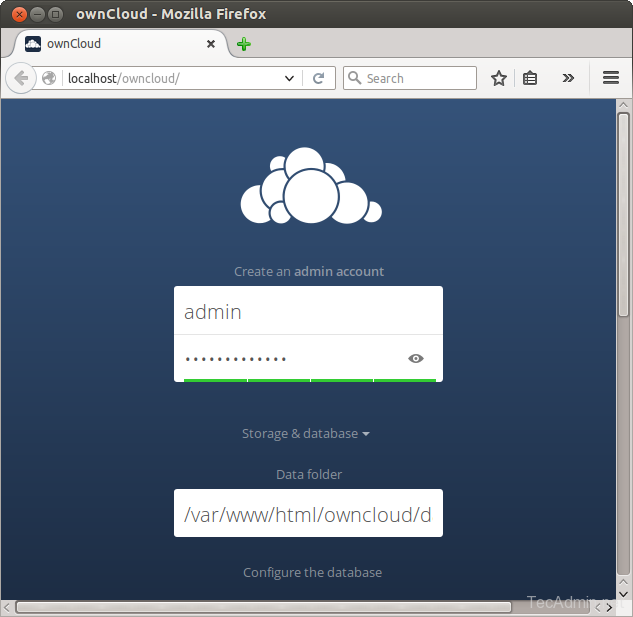

The command above will install the ownCLoud files in the /var/Configure Apache
OWNCLOUD UPDATE
Update the apt cache list and install the ownCLoud package with the following command: sudo apt update Once the key is added run the following command to enable the ownCLoud repository: echo 'deb /' | sudo tee /etc/apt//owncloud.listīefore installing the ownCLoud package we need to enable HTTPS transport for the debian apt tool by installing the following package: sudo apt install apt-transport-https

First add the ownCloud GPG key to the apt sources keyring: wget -qO- | sudo apt-key add. The ownCLoud 10 package is not available in default Debian 9 repositories so we will install the package from the official ownCLoud repositories. When the installation is complete, run the following commands to start and enable the Apache service : sudo systemctl start apache2 Php7.0-sqlite3 php7.0-xml php7.0-zip php-redis php-apcu Php7.0-mcrypt php7.0-mysql php7.0-pgsql php-smbclient php-ssh2 \ Openssl php-imagick php7.0-common php7.0-curl php7.0-gd \ Installing Apache, PHP and PHP modules is pretty straightforward process, just issue the following command: sudo apt install apache2 mariadb-server libapache2-mod-php7.0 \ To install the latest Redis version from the default Debian repositories run the following command: sudo apt install redis-server 3. Redis is an in-memory database which will be used by the ownCLoud installation as memory cache. MariaDB > GRANT ALL PRIVILEGES ON owncloud.* TO IDENTIFIED BY 'owncloud_passwd' MariaDB > CREATE DATABASE owncloud CHARACTER SET utf8 To create a database and mysql user for our ownCloud installation run the following commands: mysql -u root -p
OWNCLOUD PASSWORD
To secure your installation and to setup the root password issue: sudo mysql_secure_installation 2. When the installation is complete, run the following commands to start and enable the MariaDB service : sudo systemctl start mariadb To install the MariaDB server run the following command: sudo apt install mariadb-server In this guide we will use MariaDB as database engine. OwnCloud can use MySQL/MariaDB, PostgreSQL, or SQLite as a backend data storage. Let’s get started with installing ownCloud on your Debian 9 server. This guide should work on other Debian based systems as well but was tested and written for Debian 9 VPS. Installing ownCloud on Debian, is fairly easy task and should not take more than 15 minutes. ownCloud allows you to easily manage your files, calendars, contacts, to-do lists, and more, making it a great alternative to the popular Google Drive, Box, Dropbox, iCloud and other cloud platforms. OwnCloud is a flexible, self-hosted open source PHP web application used for data synchronization and file sharing.


 0 kommentar(er)
0 kommentar(er)
